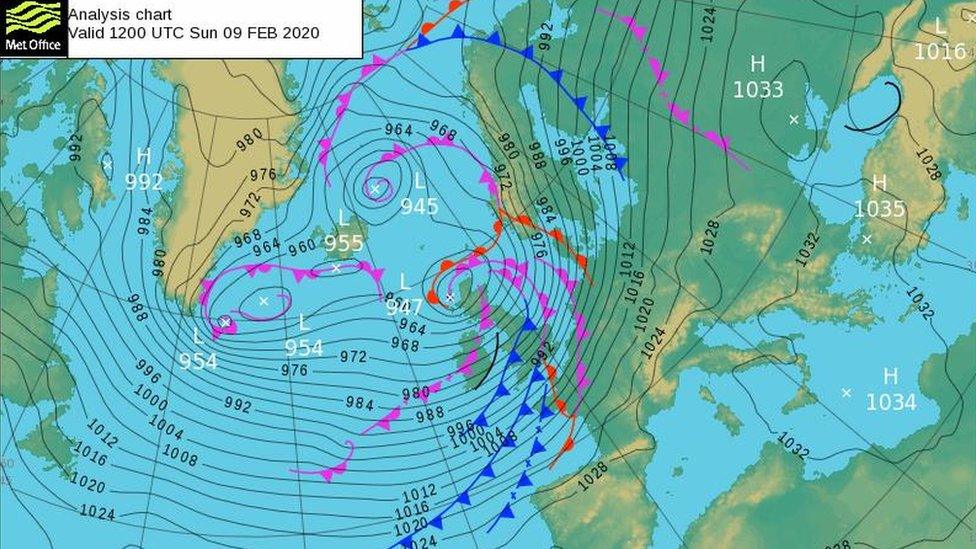Australia fires were far worse than any prediction
- Published
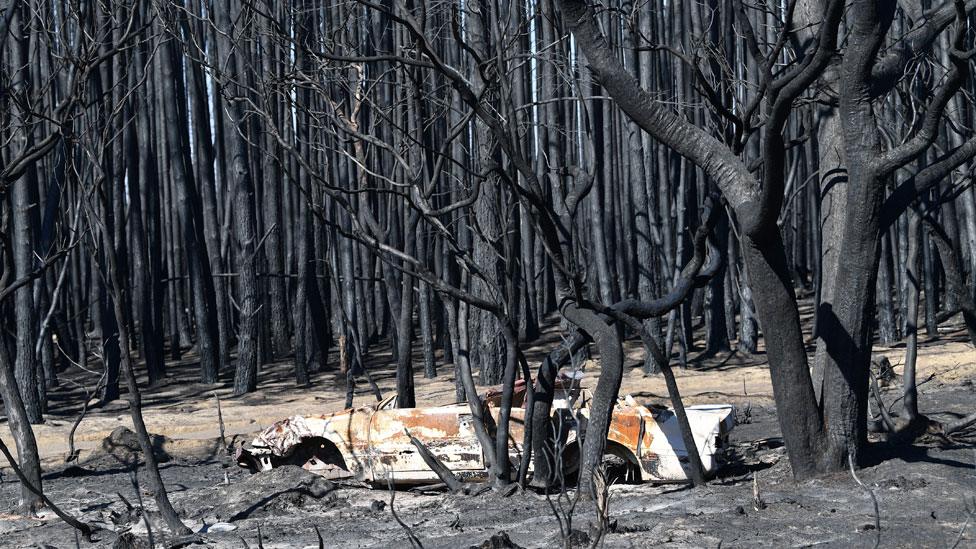
The fires are estimated to have killed one billion animals
The Australian bushfires were more catastrophic than any simulation of our changing climate predicted.
This is the conclusion of researchers who described the devastation as a "fiery wake-up call for climate science", external.
Bushfires in south-east Australia have left 33 people dead and burned an area of land the size of South Korea.
"This [was] worse than anything our models simulated," climate scientist Dr Benjamin Sanderson told BBC News.
Dr Sanderson, who is part of the French government's 'Make our planet great again', external program, said climate science needed to "do a better job" to avoid being caught out in future by wildfires, or by other catastrophes fuelled by climate change.
From his office at the European centre for research and training in high performance computing (CERFACS) in Toulouse, he explained: "The faster [the planet] warms, the more likely we are to be taken by surprise."
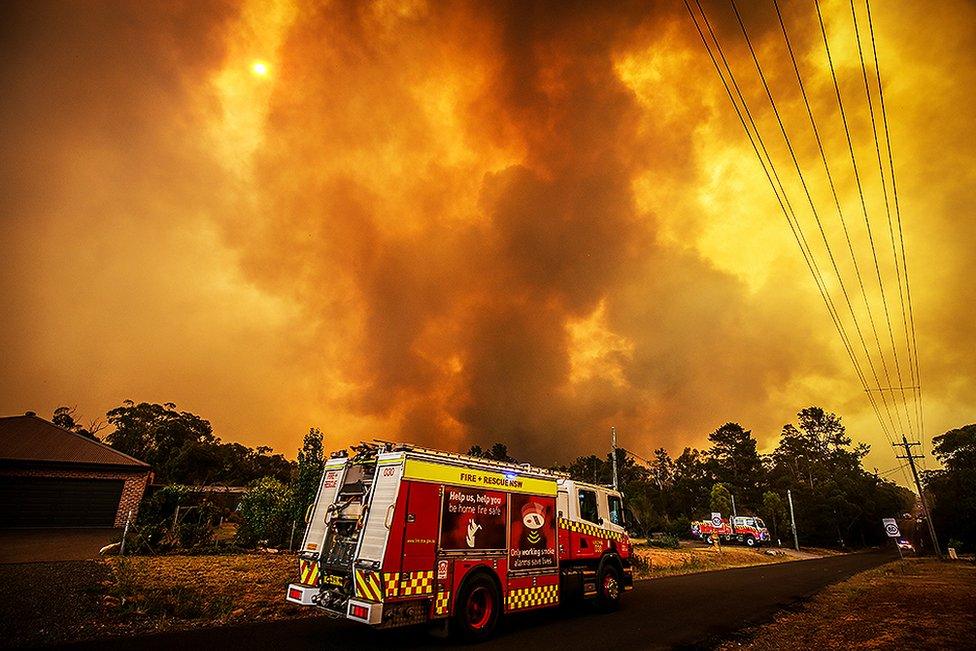
Fires in Australia caused devastation in rural communities
How climate scientists 'predict the future'
Climate models - simulations that use all available information about what drives our planet's climate - are the primary method we have to understand what will happen as Earth warms.
They are extremely good at modelling certain aspects of the climate, particularly global temperature patterns, but fire is much more complicated. It is affected by many factors, including rainfall, wind, land cover and population density - everything that increases the risk of fire, fuels and spreads it.
"But even if you look at the few models that have fire in them," Dr Sanderson told BBC News, "none of them simulate anything close to the scale of what happened in Australia".
Dr John Marsham, a climate scientist from the University of Leeds, who was not involved in the study, said wildfire risk should be included in more of the climate models we rely on.
But, he added: "We also need to consider what the full range of possible future scenarios is, rather than just focusing on the most likely one scenario.
"[This is particularly crucial] where there are risks of catastrophic consequences."
Dr Sanderson agreed: "Rather than running one simulation that looks as close as possible to the real world, we need to start creating thousands of different versions of the future.
"Those thousands of versions should span the full space of how bad this could be."
Pushing the planet into unknown territory
Understanding what the worst case scenario could look like for wildfires and extreme weather, becomes more important as we move Earth into unknown climate territory, scientists say.
"The warmer it gets, the more uncertain things are going to be," said Dr Sanderson.
"And until we're exploring all of the bases for our assumptions, we can't give concrete advice to society about how to adapt."
Footage shows bushfire "crowning" across treetops
Dr Sanderson, and his US-based colleague Dr Rosie Fisher, published their paper as part of a series of studies and commentaries in the journal Nature Climate Change, external. Each one explores the impact of the fires or what we have learned from them.
Another paper, published in this same issue, confirms that the extent of the Australia fires vastly exceeds previous wildfires, external - both within Australia and elsewhere in the world.
Their direct link to climate change is still being investigated, but scientists have previously established that links between climate change and the severity and frequency of "fire weather" - a combination of higher temperatures, high winds and low humidity.
Professor Liz Bentley from the UK's Royal Meteorological Society added that extreme weather events everywhere were a wake-up call to the reality of climate change.
"We know that, in the UK for example, we're going to see more extreme flooding in the future," she said.
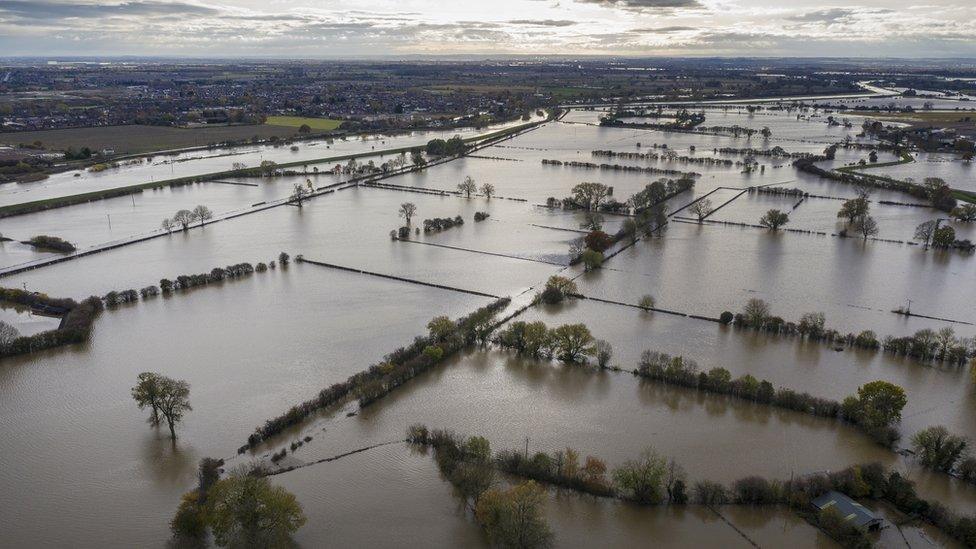
Extreme weather events, fuelled by climate change, are playing out all over the world
"So it's getting harder to see climate change as a problem that's affecting distant glaciers and islands; it's now on all our doorsteps."
- Published18 February 2020
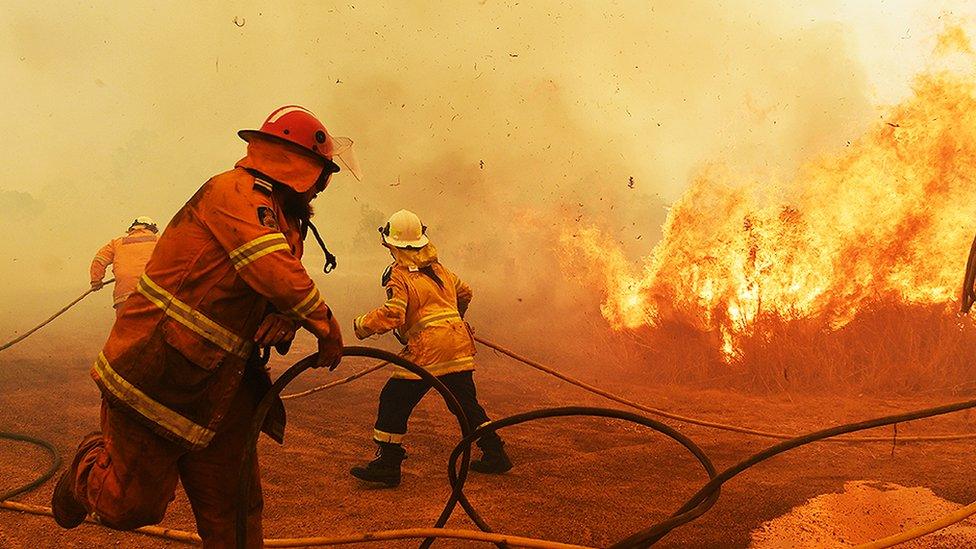
- Published29 January 2020
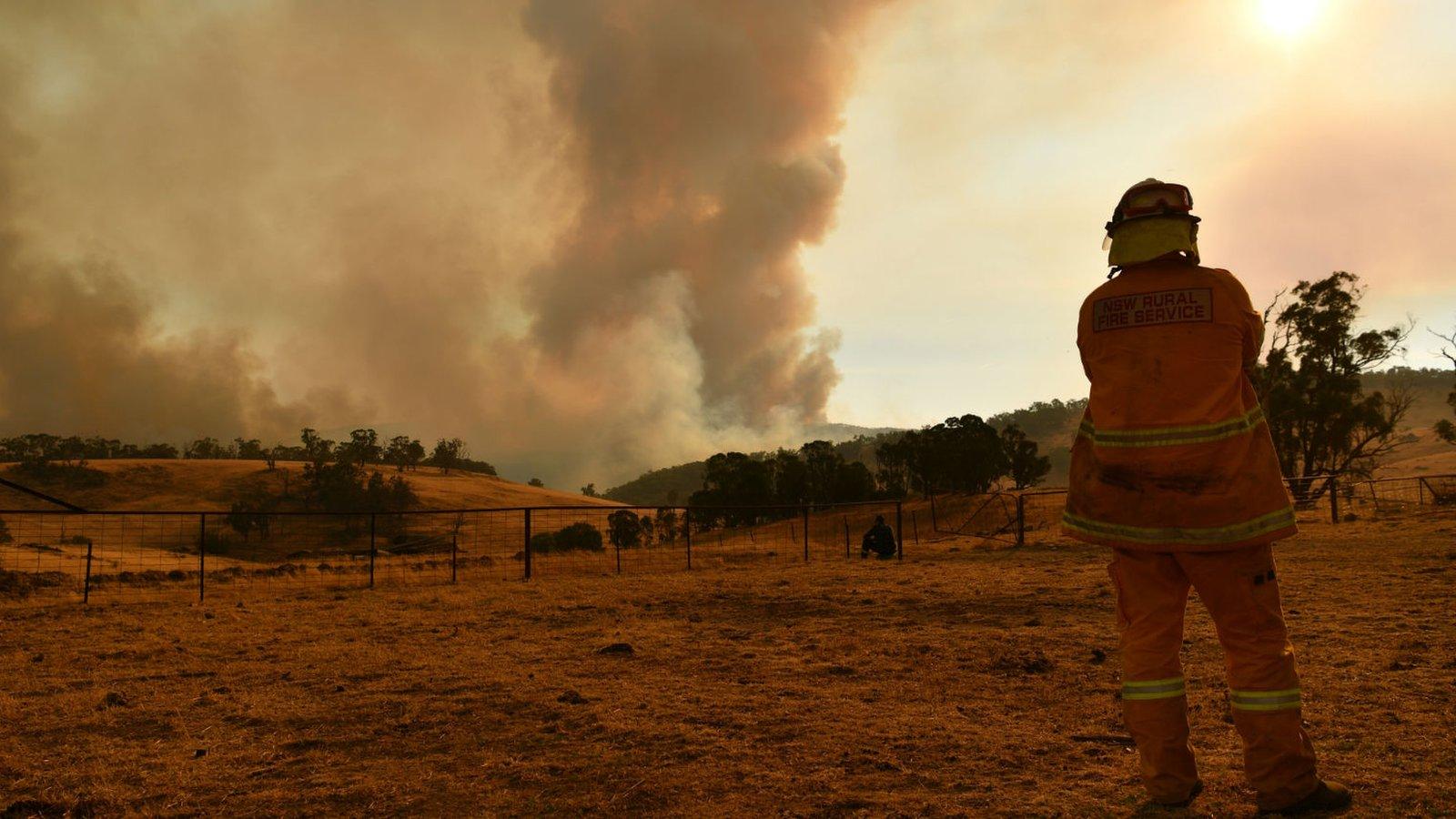
- Published17 February 2020
